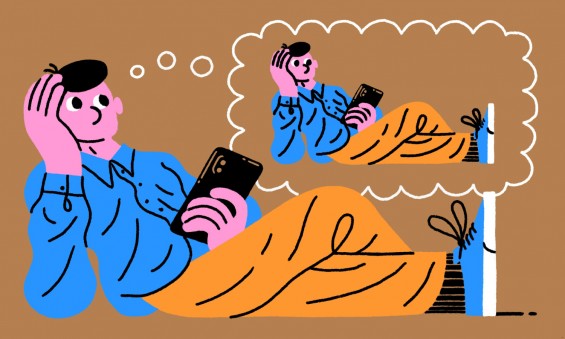
Get closer to the people in your life— by being the best mess possible
It’s time to give up on chasing perfection and embrace our uniquely individual quirks and imperfections, says author Chidera Eggerue.
We humans are pretty excellent at telling other people what to do — but not so excellent at following our own advice. Case in point: When friends and family confide they’re anxious about what to say or do at a party, most of us tell them, “Just be yourself! People will love you.”
Yet while we urge them to be authentic, we sand away our own rough edges, worried that if we’re not perfect, no one will like us.
London-based author and blogger Chidera Eggerue, aka The Slumflower, is tired of chasing perfection, so she’s … just stopped doing that. As she puts it, “Everybody essentially is going to be messy forever, [so] I’m trying to be the best mess. I’m trying to be like, Mm-hmm, my hair’s a bit tangled, but I like this hairstyle. You know my shoes are a bit tight? I like these shoes. One of the diamanté bits on my dress is falling off, but I like this dress.”
What does it mean to be a beautiful mess? As Eggerue says: “It’s an understanding that regardless of how I show up, I’m enough because I said so.”
Recent research shows everything we stand to gain from adopting this attitude. Inspired by Brené Brown’s work (and talk) on vulnerability, a study from psychology researchers at the University of Mannheim, Germany, examined the “beautiful mess effect.” In a set of studies, they presented subjects with hypothetical fraught situations, which included confessing romantic feelings to a friend, admitting a mistake at work, and being the first to apologize after arguing with one’s partner. After reading detailed depictions, participants assessed how they’d feel if they saw another person reveal their vulnerability in these scenarios — and how they’d feel if they were the ones revealing vulnerability.
The results: “Even when such examples of showing vulnerability might sometimes feel more like weakness from the inside, our findings indicate that, to others, these acts might look more like courage from the outside,” the researchers wrote.
By being our best possible messes, not only can we quit pursuing perfection, we can also build greater trust and closeness in our personal and professional relationships.
Now isn’t that something worth striving for?
Watch her TEDxMauerPark talk here:
ABOUT THE AUTHOR
Mary Halton is Assistant Ideas Editor at TED, and a science journalist based in the Pacific Northwest.
This post was originally published on TED Ideas. It’s part of the “How to Be a Better Human” series, each of which contains a piece of helpful advice from someone in the TED community; browse through all the posts here.




